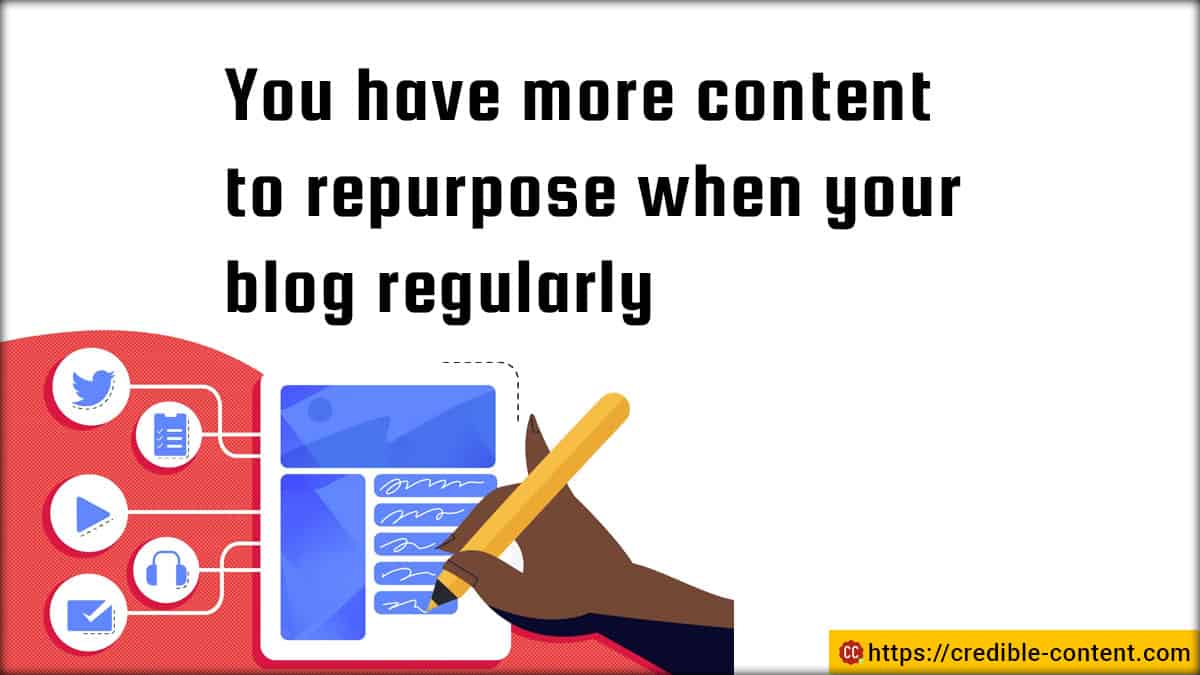Blogging has matured. It no longer remains a “trend”. If you visit a serious business website, there is a 90% chance that in the main navigation you will also have a link to their business blog. Most of the serious businesses understand the benefits of business blogging.
Since blogging is no longer a new trend, many people discount business blogging as a marketing tool whose time is over. Nobody wants to read blogs, people say. Everybody is on Instagram.
Is it true that business blogging is no longer useful? The problem is not with blogging; the problem is the lens through which these people view business blogging.
There are some blogs that are extremely popular. Most of the niches have been covered it often seems. Whenever someone thinks of starting a blog, the task seems overwhelming, especially when you don’t want to just publish a blog, but also get decent traffic.
Whereas it may be true for non-business blogs (blogs that are published merely to generate advertising and affiliate revenue), when you regularly publish a blog for your business, it never fails to deliver. This is, provided, you publish regularly, and you choose your topics after due consideration.
If you are having doubts about publishing a business blog, here are the 3 benefits your blog is always going to deliver:
Your business blog improves your SEO
One of the biggest requirements of better search engine rankings is having lots of content under your domain.
The main website can have only a limited number of web pages. In the top navigation, once you have covered everything you want to talk about your business, publishing extra pages will be distracting for your visitors.
This problem is solved by your business blog. There is no end to how much you can publish.
If they have the budget, I always recommend to my clients to publish at least three blog posts every week. There is a reason.
You want Google to quickly crawl your website and index the new content that you have published. Although you can submit your link to Google Search Console for relatively faster crawling and indexing, ultimately it depends on Google with what frequency its crawler crawls your website.
The frequency is decided by the frequency with which you publish new content on your website. If you publish content with greater frequency, Google crawls your website with greater frequency. I have experienced this firsthand.
Once I was publishing a blog four times a day. My new blog posts would get indexed within seconds. Normally, if you don’t publish frequently, it may take anywhere between one week to one month for your content to start appearing, if at all, in the search results.
So, this is one benefit of publishing your business blog – you can increase the frequency of publishing without creating a ridiculously long lineup of web pages. You provide Google with fresh content with greater frequency.
Also, you need to cover all your possible keywords. You cannot cover all your keywords using your main website pages. But this can be achieved with your blog posts.
Here I am assuming that when you decide the topics of your blogs you take your keywords into consideration. You can use both your primary and secondary keywords. You can also use your longtail keywords.
You also give an opportunity to other website and blog publishers to link to your website.
Backlinks, as you must know, are very important for improving your search engine rankings. Backlinks must be voluntary. People should link to your blog or website because of the value your content provides, and not just as a link-exchange exercise.
No matter how informative your main website pages are, people will be reluctant to link to them because after all, they are business pages. In some manner they will be promoting your products and services if they link to your business pages, something people rarely want to do.
But blog posts are informative. They have useful information that can add value to people who link to your content. People readily share and link to blog posts, but they are hesitant when it comes to sharing and linking to your main website pages.
These three attributes are important for your SEO:
- The frequency of content publishing (more regular, better for SEO).
- The length and the breath of the keywords/topics that you cover.
- The greater number of backlinks your useful blog posts generate.
Your business blog engages your visitors
Blog posts are always thought-provoking. They inform your visitors. They educate them. People find them useful. They force people to think. When they have to think a connection is established with you.
If you are reading this blog post and if you have read it so far, it means I have been able to engage you. The topic is of interest to you.
Although if you may have found this link on Google I have been able to push my SEO agenda further, the link is not just helping me improve my SEO, it is also providing you some useful information that you can use to derive benefits from your own business blog.
You may also think, since I know so much about business blogging and since I am able to communicate convincingly, in case you need a content writer for your business blog, why not hire me?
Even if you don’t hire me immediately, assuming I publish my blog regularly and you are able to find it with greater frequency, you will remember me whenever you need a professional content writer or blog writer.
Your business blog enables you to become an industry expert
In terms of becoming an industry expert, your business blog helps you in two ways:
- To write high quality content on your blog, you learn and evolve more.
- Your visitors began to look at you as an authority figure because you are constantly sharing useful information.
What about people who hire a content writer for publishing blog posts for their business blogs? Even if you are not writing blog posts yourself, working with a content writer is also a great learning experience.
When I am writing blog posts for my clients, I always encourage them to give me as much background information as possible. One, it saves them money, and two, it allows me to deliver exactly what they are looking for.
If I have to research everything, I charge for my time. Since a client already has an expertise, he or she is in a better position to quickly research and give me the needed information.
Additionally, a client never publishes a blog post without thoroughly going through it. This too is a learning experience.
Although I can go on and on with the benefits of business blogging, these are the 3 main benefits of publishing a business blog. The rest of the points that you may find on other blogs are simply the subpoints of these 3 main points.











